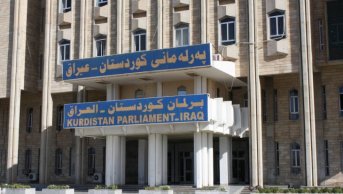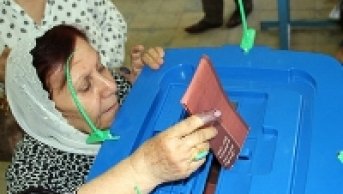Results of national elections in Israel leave country with no clear winner or loser

Preliminary election results in Israel have been released. According to the early numbers, the Likud-Beiteinu won 31 seats, the Yesh Atid Party won 19 seats, the Labor Party won 15 seats, Bayit Yehudi and Shas parties won 11 seats, United Torah Judaism won 7 seats, Hatnuah and Meretz won 6 seats, the Arab Parties won 12 seats and Kadima won 2 seats in the 120-seat Israeli parliament.
One of the most important characteristics of the election is the fact that voter turnout hit its highest level since 1999. After the announcement of election results, it seems that the scenarios around who will take power in government have become more complicated in Israel, where almost all parties declared victory after passing the election threshold in the preliminary vote count.ir
The country slowly got into election mode starting in July 2012, when the Israeli government started to crack. However, there was still an uncertainty about the elections up until October 2012 when Israeli Prime Minister Benjamin Netanyahu announced early elections. As of this date, new political alliances rapidly emerged one after the other. In this context, adding to the internal problems of parties that assert they are centrist such as Kadima, to the factionalism among left parties in Israel, the impression that politics in the country will move further to the right was made. The fact that Likud and Yisrael Beiteinu parties, which are two important allies of the coalition government, announced that they would join forces gave the impression that the right wing would gain more power.
On the other hand, the victory of Naftali Bennet, who is a former Netanyahu advisor, in the Habayit Hayehudi Party after the two parties joined forces was the first sign of schism among right-wing parties.
The momentum gained by Hayehudi, which had won only three seats in the previous election, thanks to Bennet was observed in the results of public opinion surveys before long; and estimations that the party might rank third in the elections became stronger.
Right after this development, the attack that Israel launched in Gaza in mid-November opened a new chapter in the electoral process. The attention of the public in Israel turned to the conflict for at least a week. Operation Pillar of Cloud, which is described by many people as a show of force and an election investment for Netanyahu, caused a different reaction in Israeli public opinion. While some of the left parties (for example Meretz) wanted the conflict end, the majority of parties criticized the Netanyahu government not for launching the attack, but for stopping too early and failing in their mission. As a matter of fact, the popularity of Likud-Beiteinu Coalition started to rapidly decrease after Israel’s attack on Gaza.
Election results and government scenarios
First of all, the election results might give the impression that politics in Israel have had somewhat of a tendency to lean towards center or relatively towards left. However, while saying this, parameters of Israeli political life should be used as a base. The right-left balance, which was 65 to 55 in 2009, is now 60-60. Namely, considering in terms of the number of seats, there is at least a numerical balance between right-wing and left-wing parties. As balances change, moving towards the left, the results indicate traditional right-wing voters voted for the left and center voters appeared to maintain their allegiances. As a matter of fact, it is seen that the total number of seats of four parties (in this election Likud, Yisrael Beiteinu, Ichud Leumi and Hayedi) receiving 49 votes in total in the 2009 elections has declined to 42 seats in this election. In addition to this, while there is no change in the number of seats for the Shas Party (11), it is seen that the United Torah Judaism Party took two more seats (seven in total). Kadima, Livni’s Hatnuah and Lapid’s Yesh Atid’s (27 seats in total), which claim to be center parties, results suggest a similar performance to Kadima’s seat 28-seat performance in the last elections. The rise in the number of seats of Meretz (6) and the Labor Party (15) from a total of 16 to 21 might be explained by a relative rise of voter turnout in Israel and the impact of economic policies in recent years. Therefore, it would be truer to suggest that the election results in Israel have not changed the overall balance among the right, left and center parties in the country to a large extent, and that the results only provided relative negotiating power for the center parties.
The first scenarios made from this point of view are about who will form the government. The primary goal of left and center parties is to do what Likud did to Kadima in 2009 and to prevent them from forming a government despite the fact that they won the elections. In this context, the biggest ace of these parties is the hesitation of Netanyahu regarding whether to include Bennett, who might be his biggest rival in the future, in the coalition; and the gains that extremist religious parties will ask for in return for their support in the formation of the government. However, the biggest weakness of center and left-wing parties also stems from themselves. It is highly likely that Lapid’s Party will play the most important role in shaping the coalition. Netanyahu, who had 27 seats with his party in the previous election, currently has 31 seats with the coalition. Besides, in case Yisrael Beiteinu leaves its bloc with the Likud party due to the disappointment it may experience in the formation process of the government, it would be harder for Netanyahu. In this case, Lapid with 19 seats might be the next key figure of the new government. As a matter of fact, Netanyahu might prefer a single party for 19 seats instead of making concessions to several parties for 10 or less seats. Moreover, 2013 will be painful for Netanyahu, who has been under more international pressure, as he constantly uses the subject of Iran to manipulate Israeli public opinion, using it to conceal real internal and external problems.
On the other hand, in an environment where the biggest party won 19 seats, center and left-wing parties don’t have enough power to form a new government. To sum up, it is highly likely that Netanyahu will have limited decision-making power despite the fact that he will keep his office as prime minister in the new government. His limited powers could make it extremely difficult to tackle and make decisions that can be implemented about Israel’s economy, social problems and arguments on social consensus. On the other hand, it is hard to suggest with the current parliament and potential government composition that Israel will take positive steps in the peace process, will accord legal rights of Palestinians, and will actively participate in helping to ease tensions all across the Middle East.










